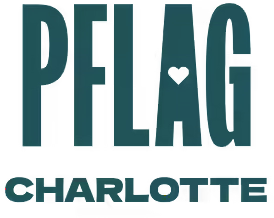
Recently, I had the honor of being at the annual Victory Institute’s International LGBTQ Conference. This conference is the largest gathering of LGBTQ officials in the country and is attended by hundreds of elected and appointed officials worldwide (many of whom are the first of their identities to be in their positions), activists, journalists, and policy experts. It’s also attended by people like me – a 20-year-old Black queer student who simply needed to be in a room full of successful and joyful queer leaders. I recently finished my first semester of law school and, although this conference was right before finals, I knew that not going when I had the chance was a bad idea.
So I went. And it was magic. I met queer people who I had looked up to for so long – Malcolm Kenyatta, Erin Reed, Leslie Herod, etc. – who brought powerful messages about what it means to be an activist and a leader. I had meaningful conversations in breakout sessions and plenaries about disability advocacy, reproductive justice, mental health, and how they interact with LGBTQ advocacy. On the first day of the conference, U.S. Representative Sharice Davids was asked where she finds hope despite the hate and violence queer people continue to face. She responded that seeing queer young people fighting every day makes her feel like we see a future for ourselves. Just four days prior, I was wrestling with a sermon about hope. I said to someone after that sermon, “I feel like I have too much to lose to be hopeful.” But then I thought about how I’ve been fighting for equity and justice for years. I thought about the way young people around the world have been fighting. Rep. Davids is right.
We’ve been fighting because we do see a future for ourselves.
We see a future where we are not only surviving but thriving.
We see a future paved by the elected and appointed officials at this conference. Even when that future seems far away, we are committed to demanding that future. How can you not be hopeful when you see that?
I’ve toyed with the idea of running for office for years, constantly changing my mind about whether that was what I was being called to do. One of the biggest things I appreciate about this conference and the Victory Institute is that there is a wholehearted belief that anyone can run for office. Vermont’s first transgender legislator told me directly, “We need you in that office. We need you to run.”
At the conference, I was talking with a former candidate for the Indiana House of Representatives about the struggles I had been facing this semester. She had a lot of great advice, but her parting words have stuck with me, “Thank you for being brave.” If anything, I thought she was the brave one. She had run for office, and I was just a law student that frequently had days I couldn’t even get out of bed. But, in the words of Mark Manson, “bravery is feeling the fear, the doubt, the insecurity, and deciding that something else is more important.” That’s why we do what we do. Whether it’s a law student talking to a law school administrator about how they need to better support and affirm queer students or the first openly trans man elected to U.S. state legislature talking about why he fights for his constituents, we advocate because equity and justice are more important than fear and insecurity. We do this work because advocacy saves lives. It saved mine.
